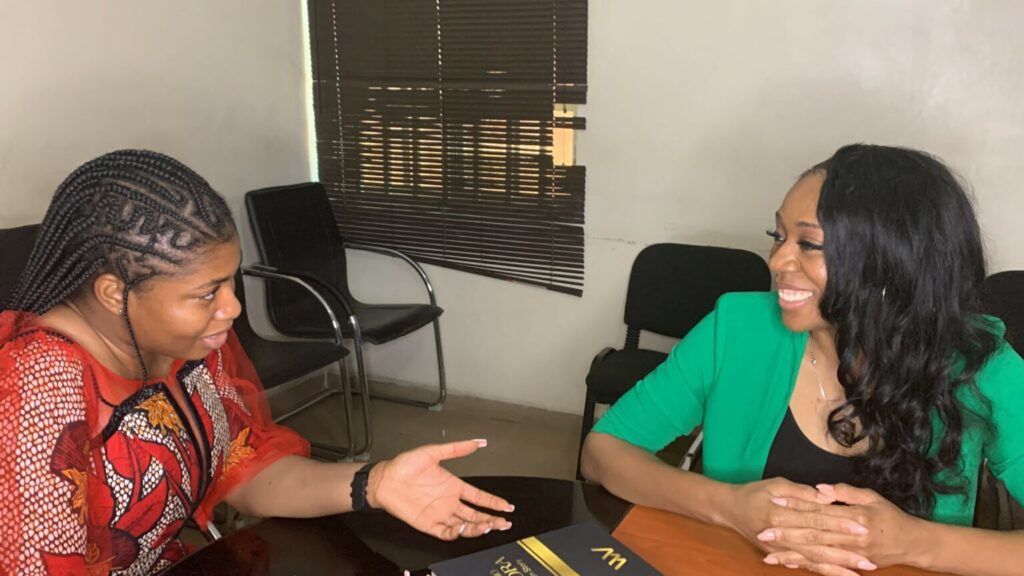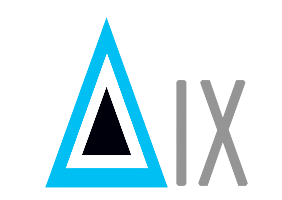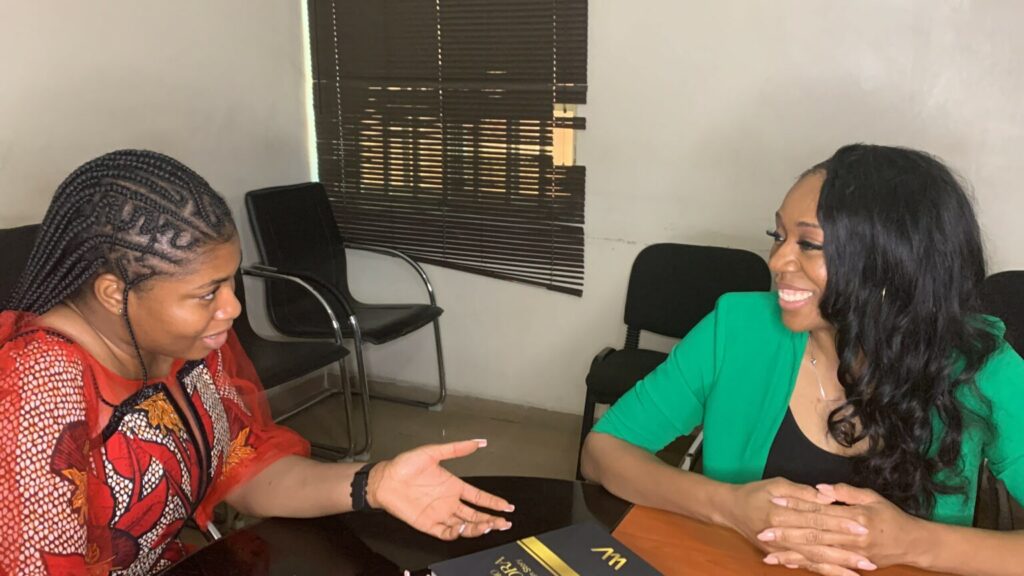Linda Anukwuem, who publishes ‘Who is Who Diaspora, says there are different segments of the diaspora who still think negatively about Nigeria.
Born in Houston, United States but raised the Nigerian way by her immigrant parents who held their ‘Nigerianess’ close to their hearts, Linda Anukwuem, the publisher of ‘Who is Who Diaspora’, in this interview with PREMIUM TIMES speaks about her journey and the publication which is spotlighting Nigerians doing great things abroad.
Ms Anukwuem’s roots are in Ihitte-Uboma of Imo State. She recalls growing up as a young girl with an African background facing racism at school because of her accent.
“Now it is cool to be African, Nigerian; it is cool to listen to Afrobeats. During that time, it was not. Even just going into school with the accent, we were called several derogatory names.”
Ms Anukwuem, even though she was born and raised in Houston, insists she grew up in a Nigerian home.
“I grew up in a Nigerian home, only ate pounded yam, jollof rice, rice and stew. My mum did not make those American dishes that we would see at school or friends’ homes if we were allowed to visit them.”
She recalls her father being the one who kept the culture. “I appreciate my dad because he kept the culture as well, my mum would call me Linda and my dad would call me Adamma, so for me he kept the culture.”
Ms Anukwuem is today seen as a facilitator, organiser and an advocate for the community in the diaspora.
Excerpts:
PT: How did ‘Who is Who Diaspora’ come about?
Ms Anukwuem: I would say it started around 2011 when I decided to come home on my own. I went back to the East to really get to know where I was from. At that time, I think I was more mesmerised by the youth and how everyone, including me, should partake in pushing the country forward as far as development and even the physical infrastructure that should be on ground.
Sometimes, it takes more than a village like we always say, and I do think the diaspora is in a special place where it can lend some of those talents that have been acquired, especially those who have left the country, gained a couple of skills, enhanced what they learnt here (Nigeria) and take care of home basically.
PT: You came back to Nigeria for the first time in 2011?
Ms Anukwuem: Yes, I came to Nigeria for the first time in October 2011 as an adult and I went straight to Owerri. The people who hosted me wanted to give me full experience and when I landed in Lagos, we drove from Lagos to Owerri. Of course, I cannot do that now but I appreciated that because I was able to understand the good and the bad. Although, I am still trying to understand all the checkpoints.
PT: Where exactly in Imo State are you from?
Ms Anukwuem: Ihitte-Uboma
PT: Who is Who Diaspora was more about doing something for home?
Ms Anukwuem: As a book, I think with any project you should be able to expand more and in more ways, it should have different branches and those branches, no matter what, should be able to lead to a working relationship with the country itself. The book is a resource for the community, both in the diaspora and to the home country. Even in the book when I had to do research into the diaspora, some people do not understand how powerful that group is; the type of money, the remittance that the diaspora sends to the country and how that money takes a spot in the economy. To me that is very important.
I feel that as we continue to move forward, there is a way that that channel alone should now turn into something formal and organised.
PT: How many editions of ‘Who is Who Diaspora’ have you done so far? Walk us through that journey?
Ms Anukwuem: There are two editions. The first edition was conceived during Covid; the work really began early 2021 and having to be home made it easier where I had to email, do Zoom calls. The first edition allowed me to understand the project and how it can work. Now, we are opening back up. Although it is a bit more difficult, I feel like the foundation of how it can work has gotten stronger.
One thing I will say is, it is not done alone. It is all done through networks; either I know the person or I do not and I will say that the first was built of half and half. The second edition is no longer half and half, it is getting more to people I do not know. They see the vision versus “let’s just support them.”
PT: The idea of ‘Who is Who Diaspora’ was birthed in 2011 when you came to Nigeria?
Ms Anukwuem: I think it was just over time. From 2011 coming here to trying to figure out what I can do on my own all the way to 2016 when we did Africa iExchange, you know, still trying to think of creating those networks and how to immerse myself in the continent.
2011 was quite difficult because you are trying to work with the government and I feel like in any country or continent, that is (working with the government) a good way to enter as far as building some type of relationship. Where you want to create an initiative, you want their backing even if it is the U.S., you want their backing. I think at that time, it became difficult where I had to work in other areas, which became Africa iExchange, for the women…
I know once you have gone through that hurdle and are still watching the dynamics of how our communities interact in the diaspora.
I think it was a number of things: contributing to the movement of changing the narrative; you know there is a stigma on Nigerians in the diaspora, especially when it comes to court cases of fraud, scam, it also hurts in the diaspora the same way it hurts here.

Also, trying to connect this network indirectly and also trying to push the initiative to connect with the country on how we can utilise the diaspora. Well, I know that Nigeria is on its way with that, that’s why we have NiDCOM.
PT: What is your take on diaspora voting?
Ms Anukwuem: I was just discussing this with someone and the person said the diaspora is not doing what they should do, they should have really rallied behind that bill to push. And immediately he said that, I asked how we can do that and of course he gave me suggestions which were takeaways for me to understand what the diaspora should do versus what they are currently doing.
You have different segments of the diaspora who still think negatively about the country in the worst way. But you do have those who think they can contribute but they do not know how to go about that.
PT: Do you think Nigerians in the diaspora should get a chance to vote and decide what happens in Nigeria?
Ms Anukwuem: I am probably 50:50 on it and that is only because some diasporans have not been in the country for like 30 years or more. Some of them who may not have hit 30 years, they probably still do not frequent the country enough to vote on what policies impact people on ground. I am all about being fair.
But I would probably like to vote based on what I am reading, because I have been here and seen some of it. Another thing is, would it be fair? Based on the different groups that are represented in the diaspora?
PT: The diasporans often speak about how much they contribute to Nigeria’s economy- remittances…
Ms Anukwuem: They are just talking about money because they look at the common saying, “money is power”. It is almost like saying in the U.S., I pay my taxes and I should have a say. The remittances are not done in an organised, formal effort, so I do not think it is enough justification for diasporans to vote.
PT: Let’s talk about what you do in Houston…
Ms Anukwuem: I was introduced a few years back to the Mayor’s International Trading Developmental Council for Africa (MITDC-Africa) and mainly, what that council will do was host inbound delegations that come in from Africa. One of the last ones I remember incoming from Nigeria was Obasanjo.
The thing is when most of these inbound delegations come in, it’s always the question of what are they looking for? Because most delegations, when they come in at least through another government, they are looking to be connected to either education, healthcare or to push their initiative. But being in Houston, a lot does have to do with energy and the oil and gas sector as well.
For me, I think it has really opened my eyes to international relations, it has actually helped me to become an entrepreneur for myself. I currently play that role with the Soyo refinery project that will be based in Angola. Dialoguing, conversations between the governments is basically what I am doing for the project.
I like those projects that are trying to contribute to not only economic development but really pour into the local continent. So that project is set up to really empower the local community there versus the government.
It is a very special situation where the government actually wants profit by cash with that project. The profit that would technically go to the Angola government, the refinery will build a healthcare hub, a tech innovation centre and something to do with entrepreneurs and small businesses, helping to provide them with early training. These major hubs are going to be built and developed by the refinery which takes the place of giving the cash.
PT: Being a woman doing all you do, I will imagine there are hurdles?
Ms Anukwuem: Serious hurdles! One thing I will say, to me with all the rules and accommodation, that stigma will always be in the room. I just want to make sure I say that because sometimes I am always smiling and laughing but in those environments, I have to put on a different Linda, just because, to me, it is more acceptable where I am able to get more done without smiling more.
It has always been a hurdle. From the moment I landed in Nigeria, it was crystal clear and visible that this was going to be a tough road for me; all the way to 2019 when I came to Nigeria on behalf of a client, went into an NNPC meeting and still the same thing. They thought I was there to be the secretary, recording minutes. That trip for me was a rude awakening because I remember going to my hotel room, ordering fries literally almost in tears.
Especially in oil and gas too. As women, we try to enter some of these rooms to be at the table, one as an African woman. But then, going into an industry that has always been dominated by men is also quite tough.
Currently with the refinery project, I will say I am in the position where I am being more empowered and my talents are being seen. So it is definitely a big turnaround. But no matter what, there are still some rooms when I go in that that is still the perception. And it is quite tough even with the trade, just going into a networking event and you are probably perceived as the company to other men; it has always been the case for me where I am seen as the PA.
It is rough out there, that is what made me lose my smile.
PT: Is there an experience you will not forget trying to get on the table?
Ms Anukwuem: The NNPC one really stuck out for me, because I was actually flown from Houston to join that meeting and that was how I was perceived. I felt it, going into the room feeling sad, immersed in my own depression. Other rooms, I still experience it but not to that level. I experience it always, whether it is dealing with an African delegation coming to Houston or just a simple corporate conference room; sometimes in conversation and then I say, “Oh! Is it because I am a woman?”
That always makes some men feel uncomfortable. Then they start to explain… sometimes now, I say it just to get their reaction. But what I do know is that some have learnt to accommodate the situation where no one wants to be perceived as racist or sexist. So I have found a way to navigate around it. I just try not to smile a lot because, in some of those rooms, they do not smile at all.
PT: As a young person doing this, how does it make you feel, does it come with some sense of fulfilment?
Ms Anukwuem: One thing about me personally, there is not too much that I allow to get to my head. But I will say over the years I think I have garnered some of the respect from executives and elders in the community, especially in Houston. I do get a sense of “okay they finally welcomed me into the club.” But I do not allow it to get to my head because I still feel there is still a lot of work to do. Basically, we just got over one hurdle and now they can take me seriously.
PT: What is your educational background, what did you specialise in?
Ms Anukwuem: I think it is befitting now because I always thought about what I will do with my sociology degree. But I think it’s befitting now, how I look at the different communities and societies. WhenI think about what I do now and how I try to organise and connect how different facets of whatever project that is, how they will react or what the impact will be, that to me is my studies in sociology. Even when I pay attention to those who are currently doing what I am doing, especially when it comes to this book and their background, it fits in that area.
I also did accounting but that was just to appease the Nigerian parents’ ideology. When I was doing my undergraduate, initially I had a minor in business but I completed the minor in African-American studies. So I had a few business classes.
PT: What do your parents think of what you do now?
Ms Anukwuem: My dad has not seen the book because I have not shown him yet. My siblings and aunt have seen it. I feel like it is still something that needs to keep moving.
PT: There are a lot of profiles about Nigerians doing good stuff out there and it is great there is someone like you out there doing what you are doing with ‘Who is Who Diaspora’.
Ms Anukwuem: With this book, some were reaching out, but you know that is doing a lot of keeping up, with everything being shared on Instagram, Facebook and WhatsApp. Those were the easier ones.
Then you have a lot of quiet ones out there. Some of those are being connected by someone as well but on the website, anyone can see me. The goal is for over time for people to just go to the website and submit their profile. But the first edition definitely was built on research, paying attention to different industries, who was putting the Nigerian out there and the culture.

